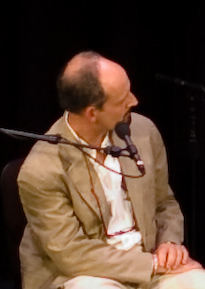Top 5 Quotes & Sayings by Francisco J. Ayala
Explore popular quotes and sayings by an American biologist Francisco J. Ayala.
Last updated on April 20, 2025.
A few years ago, they [Neandertals] were thought to be ancestral to anatomically modern humans, but now we know that modern humans appeared at least 100,000 years ago, much before the disappearance of the Neandertals. Moreover, in caves in the Middle East, fossils of modern humans have been found dated 120,000-100,000 years ago, as well as Neandertals dated at 60,000 and 70,000 years ago, followed again by modern humans dated at 40,000 years ago. It is unclear whether the two forms repeatedly replaced one another by migration from other regions, or whether they coexisted in some areas
Insect resistance to a pesticide was first reported in 1947 for the Housefly (Musca domestica) with respect to DDT. Since then resistance to one or more pesticides has been reported in at least 225 species of insects and other arthropods. The genetic variants required for resistance to the most diverse kinds of pesticides were apparently present in every one of the populations exposed to these man-made compounds.





















